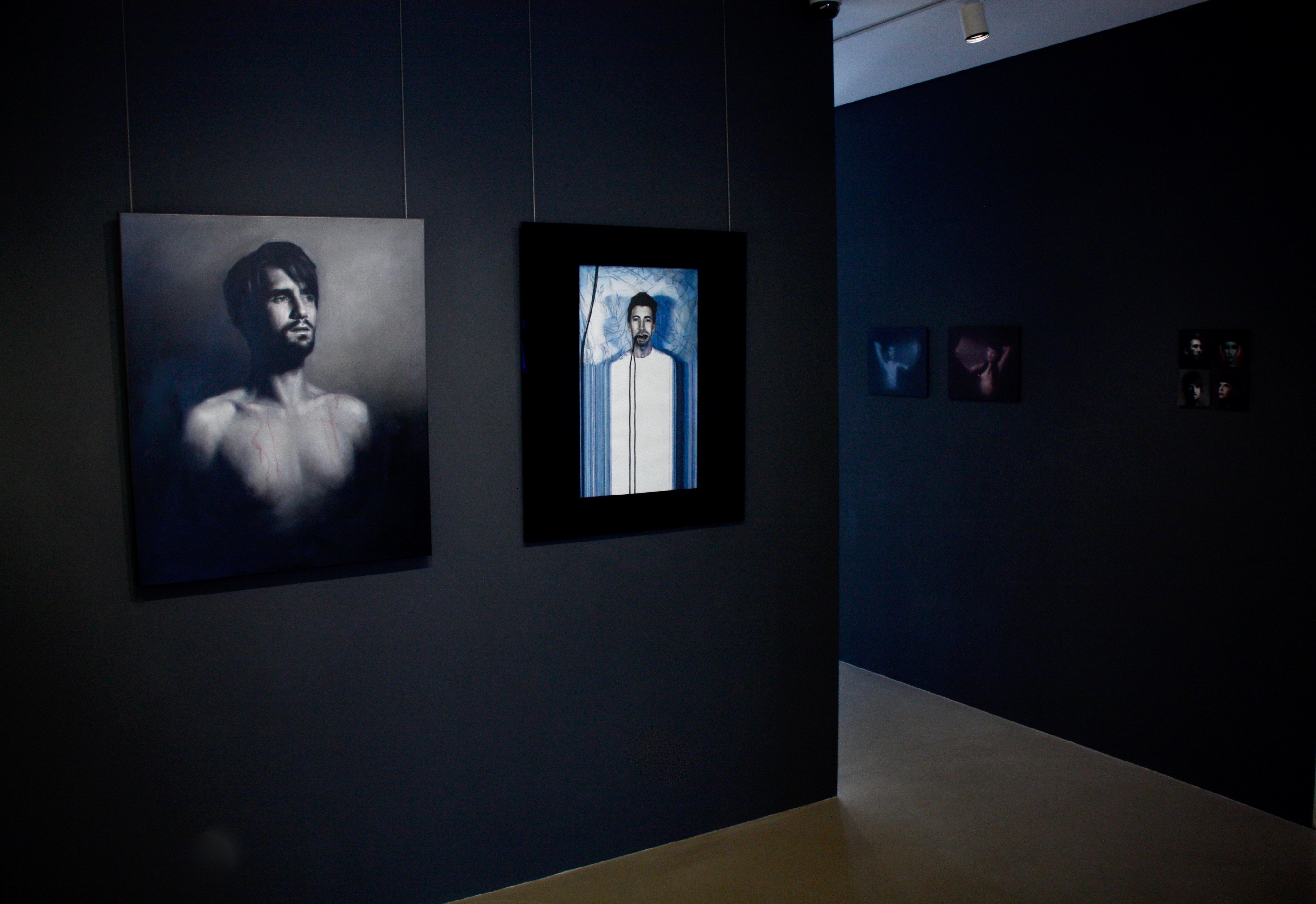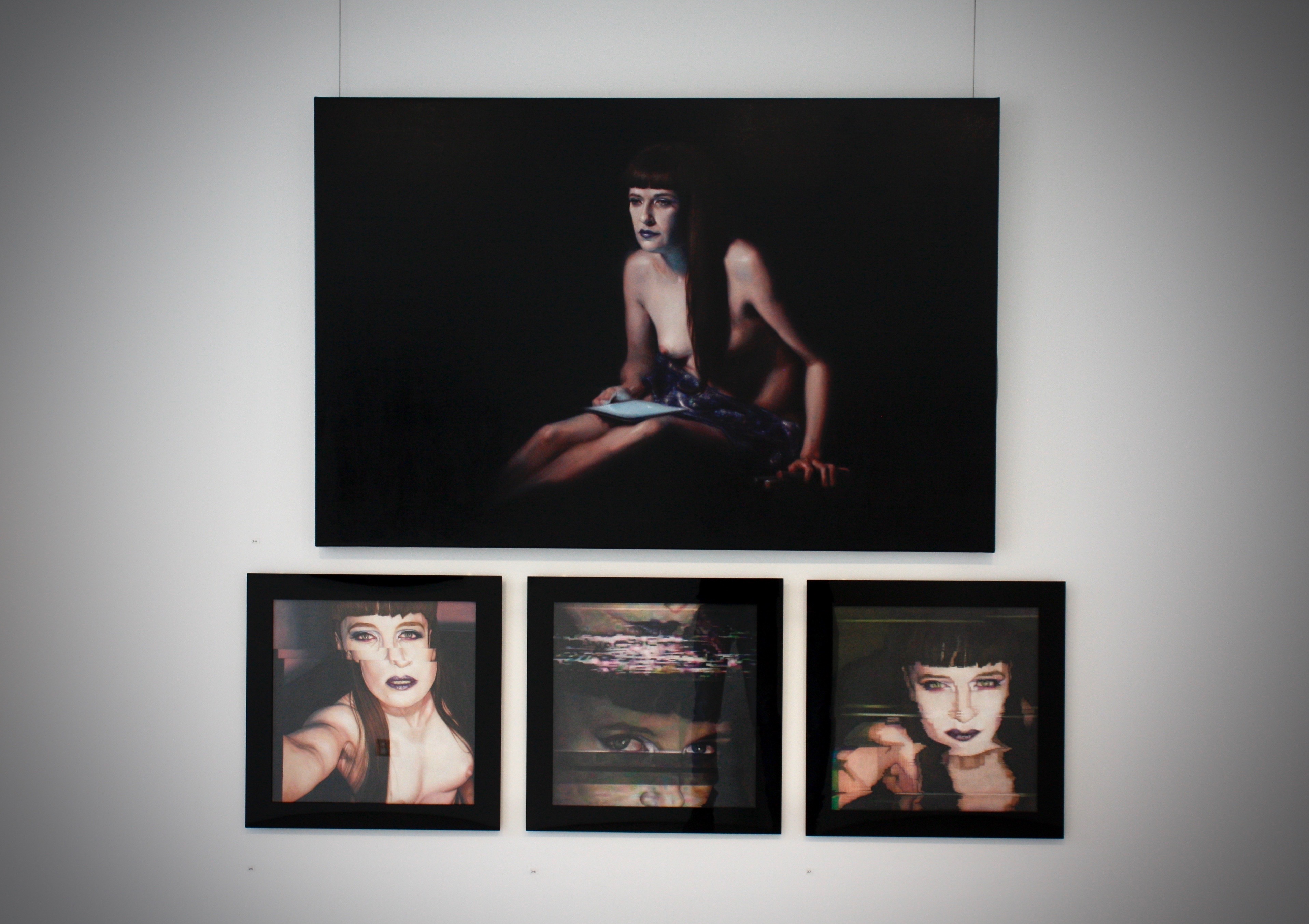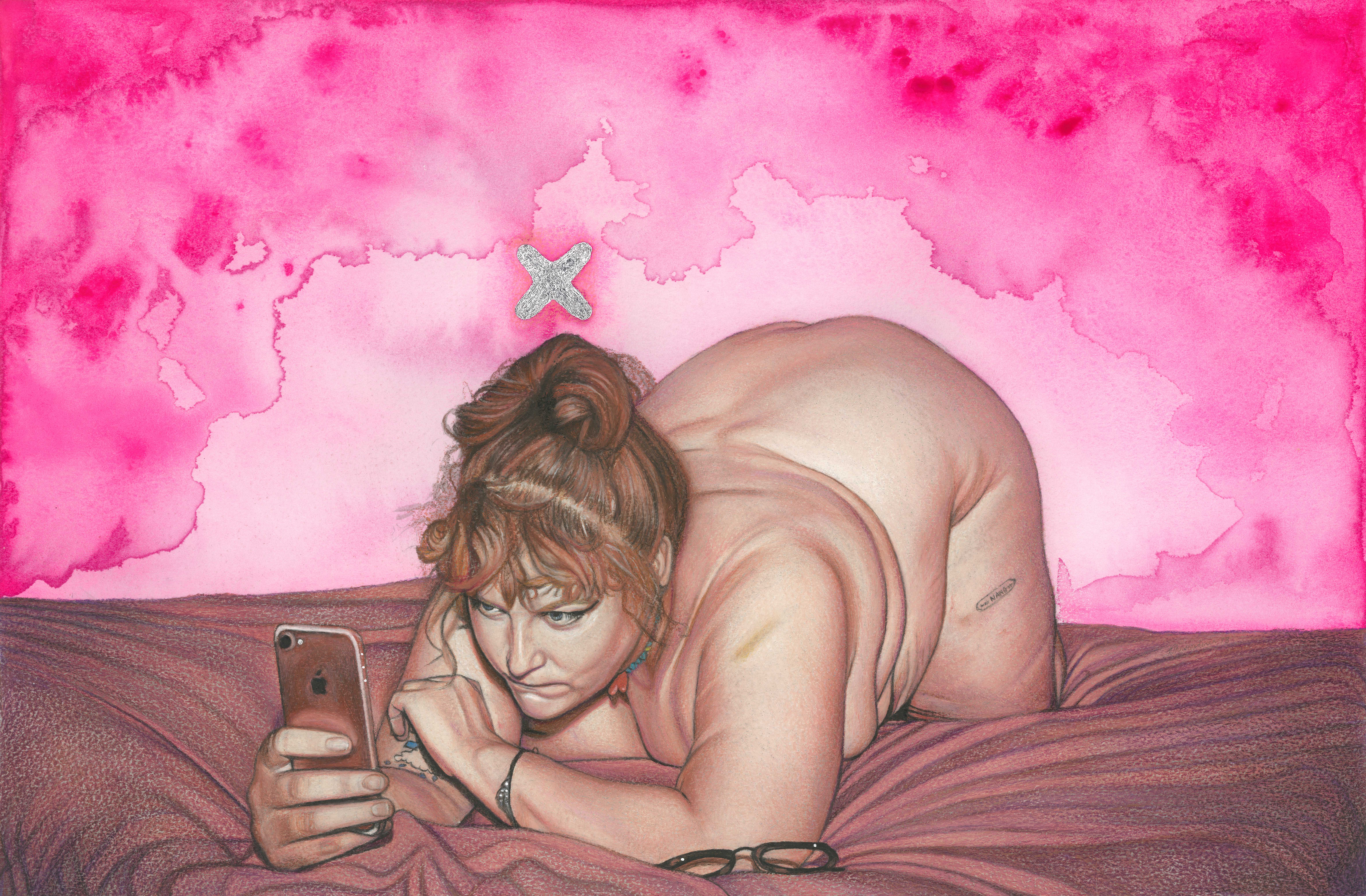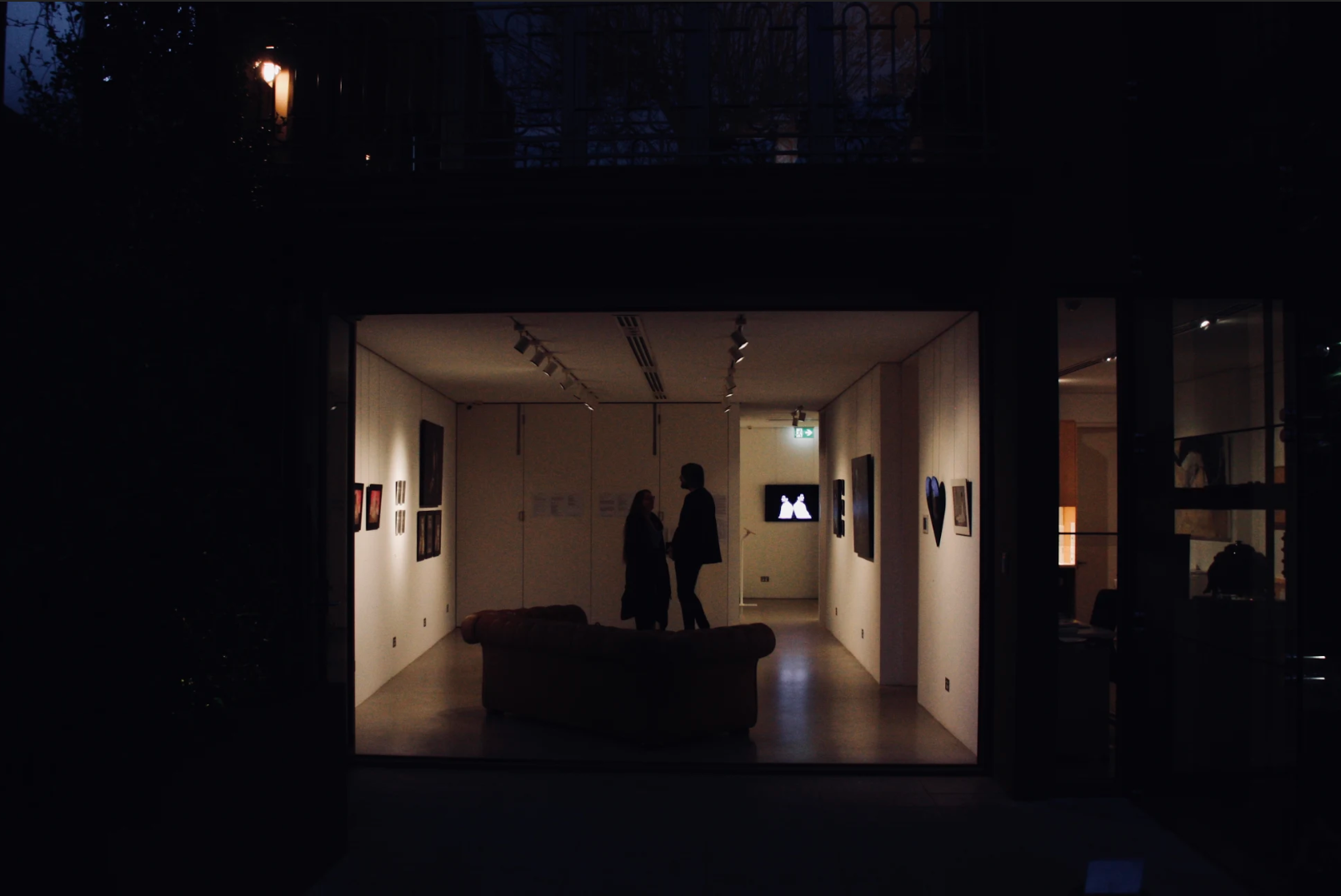The internet is obsessive; an intermedial space of creation, connection, formation, aggravation, pleasure, pain, remembrance, reiteration and discovery. Stanley Street represented artist Tom Christophersen and his internet-acquaintance-cum-collaborator Michael Simms are both a product of and a testament to the expressive, compulsive and collaborative artistic potential of digital friendships.
An unseen aspect of a garment’s structure, interfacing is integral for moulding, strengthening and stiffening, giving the appearance of cohesion. From a computational perspective, the interface is the gateway to communication and the sharing of information. Cleverly taking into account these definitions and their respective contexts, the artists put forward the idea that a cohesive self is comprised of both digital and non-digital counterparts. Using selected figures from both of their own online connections, the artists explore the functionality of digital space and social media in their suite of paintings and drawings. Stylised realism both documents and imagines an intangible and ever-changing self-perception, often looking through physical and imagined screens to illustrate this notion.

Photography by Michael Simms
Christophersen and Simms’ collaborative long-form music-video-esque work builds upon these ideas in an engaging and tangible way, glitching between their faces and building a complex, aggravated and pixelated half-human. A strong sense of anxiety and the compartmentalised self is present here, with both artists conveying their respective insecurities – Simms exuding cords and reels of a tape and Christophersen becoming distantly entranced by his own pop-mantra.

‘Hostage’ by Michael Simms | oil on canvas | 91.5 x 122 cm
In Simms’ large-scale ‘Hostage’, delicate and smooth brush strokes combine with a clever use of ‘chiaroscuro’ – an historic painting technique in which contrast between light and dark is stark, illuminating and creating emotional tension. A figure – potentially the self – sits with arched-back and cloaked face, shining phone screen light into their crotch. Caution, restraint, anonymity and knowing are at play. Intentionally faceless and angled away from the viewer, Simms constructs an intimate portrayal of suffocation and shame and the mechanistic digital exchange of body parts.

Pictured: ‘IRL’ by Michael Simms (top), ‘TIFF #1 – 3’ by Tom Christophersen (bottom)
Where the two artists paint the same figure, their iterations are complementary yet stylistically distinct. In TIFF #1 – 3, Christophersen uses a selfie as the basis for his 40x40cm glitched, woven-appearance watercolour and pencil triptych of friend and sitter Sophie. Simms takes the perspective of an onlooker in ‘IRL’, constructing a scene in which she is neither present in her digital device nor engaged with the painter or audience. Here light is played upon in technically strong and humorous ways which draw attention to the historical depiction of the female nude as virginal or angelic nymph. The light from Sophie’s iPad screen dramatically yet delicately illuminates her face in a calculated nod to the idea of a chosen self-representation.

‘Swipe Left’, 2018, 29.7 x 42cm, Mixed media on watercolour paper.
In Christophersen’s ‘Swipe Left’, a figure appears floating on rust-sheets in a candy-floss cloud of her own embodied narcissism. A series in which the sitter is viewed from above in various poses assumedly for her Tinder profile, the works present one perspective on the processes of editing, creating, re-evaluating and reflecting as core parts of the experience of online self-representation. When approached by internet friend Christophersen to sit for ‘Interfacing’, Ammy keenly accepted on the basis that she be represented nude and that she choose her poses in an effort to maintain consistent autonomy of her online activist presence in another’s representation.

Photography by Michael Simms
Calling attention to our own viewing lenses or ‘screens’ through the mounting of works in perspex frames and lenticular-esque references within compositions, Christophersen and Simms’ ‘Interfacing’ is one thorough, conceptually rich and creative perspective on representing the self through the digital. Their undeniably queer sensibility and multi-layered technical skill brings us into a screen-based universe reminding us of the vulnerability and honesty needed to exist and maintain presence online.
Both artists and all associated creatives acknowledge that this exhibition takes place on stolen Gadigal lands of the Eora Nation.
For more of Brigid’s work, please visit www.brigidhansen.com
